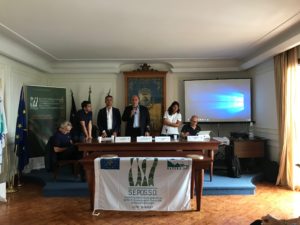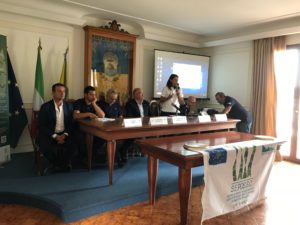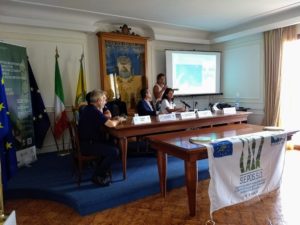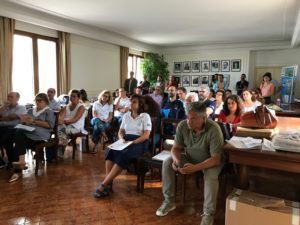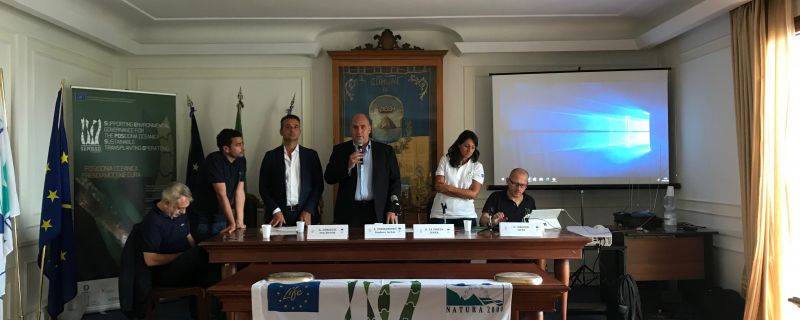
- ACTION B.1,NEWS,SEPOSSO
- No comments
As part of the events scheduled in Ischia between 18 and 21 September, for the activities and targeted meetings between stakeholders involved in the management of Posidonia oceanica transplants in the study sites (Action B.1), Life SEPOSSO has organized a round table held in Ischia Porto (NA), Friday 21 September 2018, at the Council Chamber “Agostino Matera Iacono”.
At the meeting had participated the eng. Antonio Venditti, Director of the Environmental Assessment Division of the Ministry for the Environment, Land and the Sea, Antonino Miccio Director of the Marine Protected Area “Regno di Nettuno”, in addition to the active participation of the Mayor Enzo Ferrandino and Assessor Luca Spigno. The main topic was the transplant carried out in Ischia, in the point of S. Pietro in 2008, as a compensatory measure provided by the Environmental Impact Assessment for the laying of the Bacoli-Ischia gas pipeline. The data were presented for the first time, collected during 22 monitoring campaigns of the transplant carried out over ten years of observation, in addition to the observations conducted by the team of underwater scientific operators of SEPOSSO some days before the meeting.
From the preliminary observations emerged that for the 50,000 oceanic Posidonia cuttings transplanted in the seabed of Ischia has been calculated an average growth of new bundles equal to six times the number of transplanted cuttings; sea storms, fishing and anchors have, however, destroyed about 320 square meters of 1600 of new surface. These are some of the most evident successes and criticalities that emerged during the monitoring.
Besides to the data of previous monitoring on the transplanted area, Dr. Maria Cristina Buia of the Anton Dohrn Zoological Station of Ischia presented a series of data related to the spontaneous reforestation by cuttings of P. oceanica in progress on the area of the pipeline laying.
The preliminary results of the governance analysis carried out by the SEPOSSO partners of the CNR were also presented as a fundamental step to stimulate awareness of the importance of the grasslands by stakeholders, who are now more aware of being the protagonists of the Governance process.
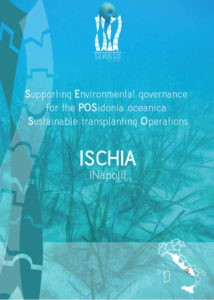
Download the brochure

